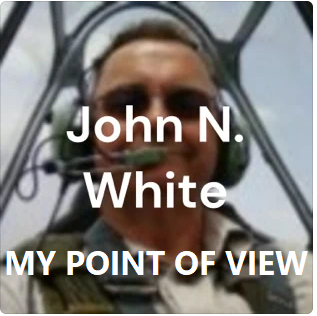What is Privacy? Why is it Important?

Privacy promotes self-reflection: On the other hand, the importance of having time to self-reflect and process one’s thoughts, feelings, and behavior without being subjected to the views and opinions of others is critical. We need to develop our own set of values and morals as well as a sense of our own identity rather than rely predominantly on the views of others.
Psychology Today, July 20, 2020 | The Importance of Privacy—Both Psychological and Legal
A Constitutinoal Implied Right to Privacy
There is a long and evolving history regarding the right to privacy in the United States. In the context of American jurisprudence, the Supreme Court first recognized the “right to privacy” in Griswold v. Connecticut (1965). Before Griswold, however, Louis Brandeis (prior to becoming a Supreme Court Justice) co-authored a Harvard Law Review article titled “The Right to Privacy,” in which he advocated for the “right to be let alone.”
Griswold and the Penumbras
In Griswold, the Supreme Court found a right to privacy, derived from penumbras of other explicitly stated constitutional protections. The Court used the personal protections expressly stated in the First, Third, Fourth, Fifth, and Ninth Amendments to find that there is an implied right to privacy in the Constitution. The Court found that when one takes the penumbras together, the Constitution creates a “zone of privacy.” The right to privacy established in Griswold was then narrowly used to find a right to privacy for married couples, regarding the right to purchase contraceptives.
Cornell Law School, Legal Information Institute: right to privacy
The right to control other’s access to one’s personal world, whether psychologically of physically. This can be attained by physical barriers or by communicating boundaries verbally.
PRIVACY: “Privacy is important to not only a person’s psyche but their sense of self-worth.”
N., Sam M.S., “PRIVACY,” in PsychologyDictionary.org, April 28, 2013, https://psychologydictionary.org/privacy/ (accessed June 22, 2023).
The case of Mary Anne Sause, a retired Kansas nurse who was told by two police officers to stop praying in the privacy of her own living room. … Not only did these officers violate Mary Anne’s constitutional rights by telling her to stop praying in her home, they also ridiculed and mocked her in the process. And no American citizen should ever be subjected to such outrageous behavior by government officials. … “There can be no doubt,” wrote the Justices of the U.S. Supreme Court in their opinion, “that the First Amendment protects the right to pray.”
First Liberty Institute, 2 July 2018 | Supreme Victory: First Liberty Wins Key Fight for Religious Liberty in The Home at Supreme Court
When you pray, you shall not be like the hypocrites. For they love to pray standing in the synagogues and on the street corners that they may be seen by men. Truly I say to you, they have their reward. But you, when you pray, enter your closet, and when you have shut your door, pray to your Father who is in secret. And your Father who sees in secret will reward you openly.
The Modern English Version of the Bible, Matthew 6:5-6, Biblegateway.com
Bloustein called undue publicity concerning private life “an affront to … human dignity”. … In Bloustein’s view, the right to privacy is a universal human right, a concern for individual dignity and independence of will, and a safeguard of individual integrity and freedom. Moreover, he saw privacy as a spiritual interest, not simply a property interest; the spiritual characteristic is individuality or freedom. … Without privacy, a person loses individual dignity, integrity, freedom, and independence. Reiman goes so far as to say that privacy is a precondition of personhood.
DePaul University, Journal of Religion and Business Ethics, April 2017, Privacy Ethics in Biblical Literature
CBDC: The Greatest Threat to Privacy
Joe Biden’s administration will inaugurate a central bank digital fiat currency (CBDC) in July of 2023. As predicted in the Bible, Revelation 13:15-17, all your personal information will be in a massive database, including your health records, employment records, social media postings, IRS records, firearms registrations, military records, vaccination records, facial recognition, your (formerly) private telephone conversations, etc.
The aggregate of your personal data is called your digital fingerprint. All fingerprints are now scanned by computers. Your physical digital fingerprint will be a component of your CBDC digital fingerprint.
As the Bible foretold two thousand years ago, you will be unable to buy or sell without your CBDC digital fingerprint.
How will life be different for you and your family?
My Opinion
Privacy is absolutely vital because, in our private moments, we can speak frankly and openly with our God. Our privacy enables us to be honest and frank with ourselves. The Fifth Amendment to the U.S. Constitution protects the Right to Privacy: “… No person … shall be compelled in any criminal case to be a witness against himself … “
Private information is sacrosanct only when the individual has not violated the rights of another person.
There are sins that affect only the individual sinner and sins that affect others. No sin is secreted from God.

The information age inherently erodes personal privacy. Artificial intelligence (AI) can now disclose your political affiliation with 61% accuracy through facial recognition, as The Dallas Express reports.
I am unable to hide anything from my family or tease them. My children, my wife, and my grandchildren will say, “Papa, you have your lying face on.”
“Finally, brothers, whatever things are true, whatever things are honest, whatever things are just, whatever things are pure, whatever things are lovely, whatever things are of good report, if there is any virtue, and if there is any praise, think on these things. Do those things which you have both learned and received, and heard and seen in me, and the God of peace will be with you.” — Philippians 4:8-9 MEV
John White
Rockwall, Texas


